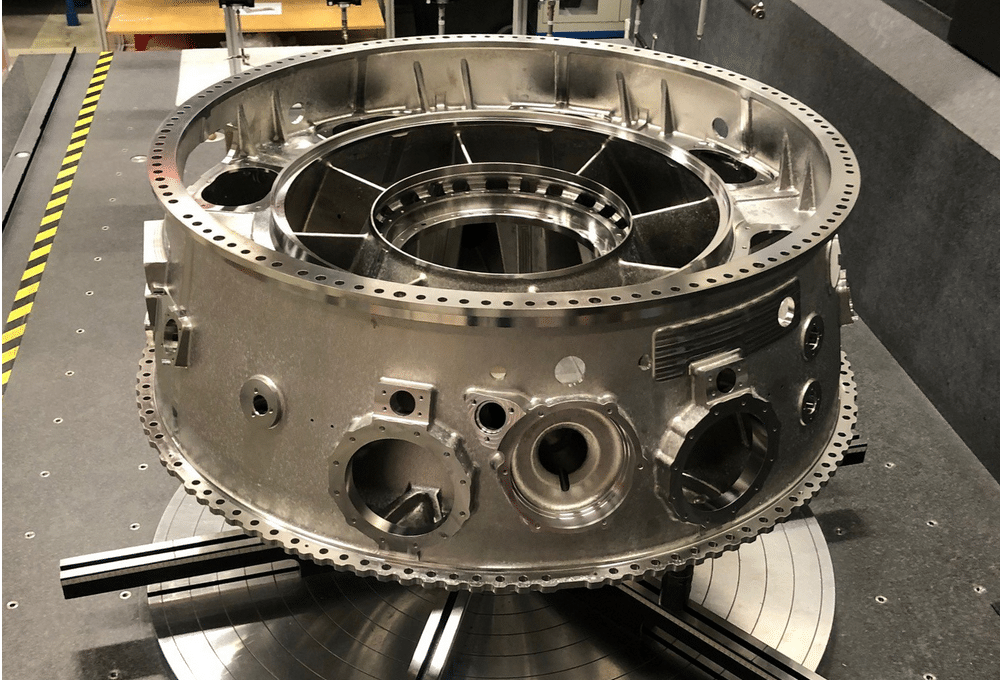GKN Aerospace in Sweden has delivered the first Intermediate Compressor Case (ICC) to the Rolls-Royce UltraFan engine demonstrator program. GKN Aerospace is a core partner in Clean Sky 2 and in the Rolls-Royce led UltraFan engine demonstrator program with responsibility for design and manufacture of the ICC. The ICC is a structure between compressor cases, which carries the rotor gas loads to the engine casing and thrust mounts.
Development, manufacture and testing of the ICC will demonstrate and validate a range of new technologies, including a low-cost and robust sectorized fabrication concept with castings. This makes use of an innovative welding method based on computer simulations; optimized bleed system aerodynamics and acoustics; shorter aggressive duct design and 3D printing of attaching parts; and model-based design methods.
UltraFan is Rolls-Royce’s next generation engine family and aims to offer a 25% improvement in fuel efficiency over the first generation of Trent engines. It features a new engine core architecture and introduces a geared design. The aim is full engine ground test during 2022, with flight-testing to follow.

Clean Sky 2 is the largest European aeronautics research program, developing innovative, cutting-edge technology aimed at reducing CO2 emissions and noise levels produced by aircraft. Funded by the EU’s Horizon 2020 program and Europe’s aviation industry, Clean Sky 2 contributes to strengthening European aerospace industry collaboration, global leadership and competitiveness.
“The delivery of the UltraFan engine ICC to Rolls-Royce is a true milestone. It reaffirms the success of the Clean Sky2 collaboration program and we are excited to have implemented our latest sustainable technologies in the ICC’s development,” Henrik Runnemalm, vice president of GKN Aerospace’s Global Technology Centre in Sweden, said. W”e are extremely proud to be a partner of the Rolls-Royce team and to contribute to this energy efficient aero-engine of the future.”
GKN Aerospace’s development of innovative manufacturing processes for the ICC has been well supported in Sweden thanks to the Vinnova funded IntDemo-project and the Västra Götaland Region.
